17 TV Shows That Didn’t Live Up to the Hype
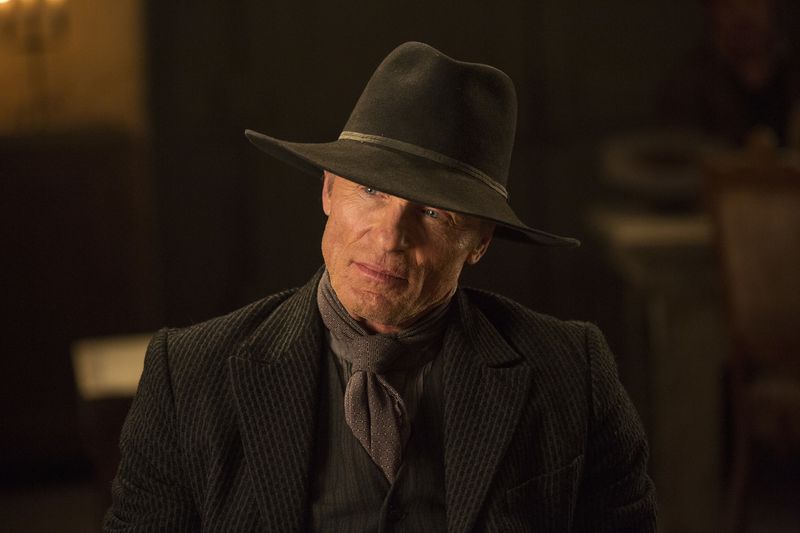
TV networks and streaming platforms love to build excitement around their newest shows. Flashy trailers, star-studded casts, and massive marketing budgets create sky-high expectations. But not every show delivers on its promises. Some start strong then fizzle out, while others never find their footing at all. Here’s our rundown of 17 shows that had viewers hitting the pause button on their remote – and not in a good way.
1. Heroes
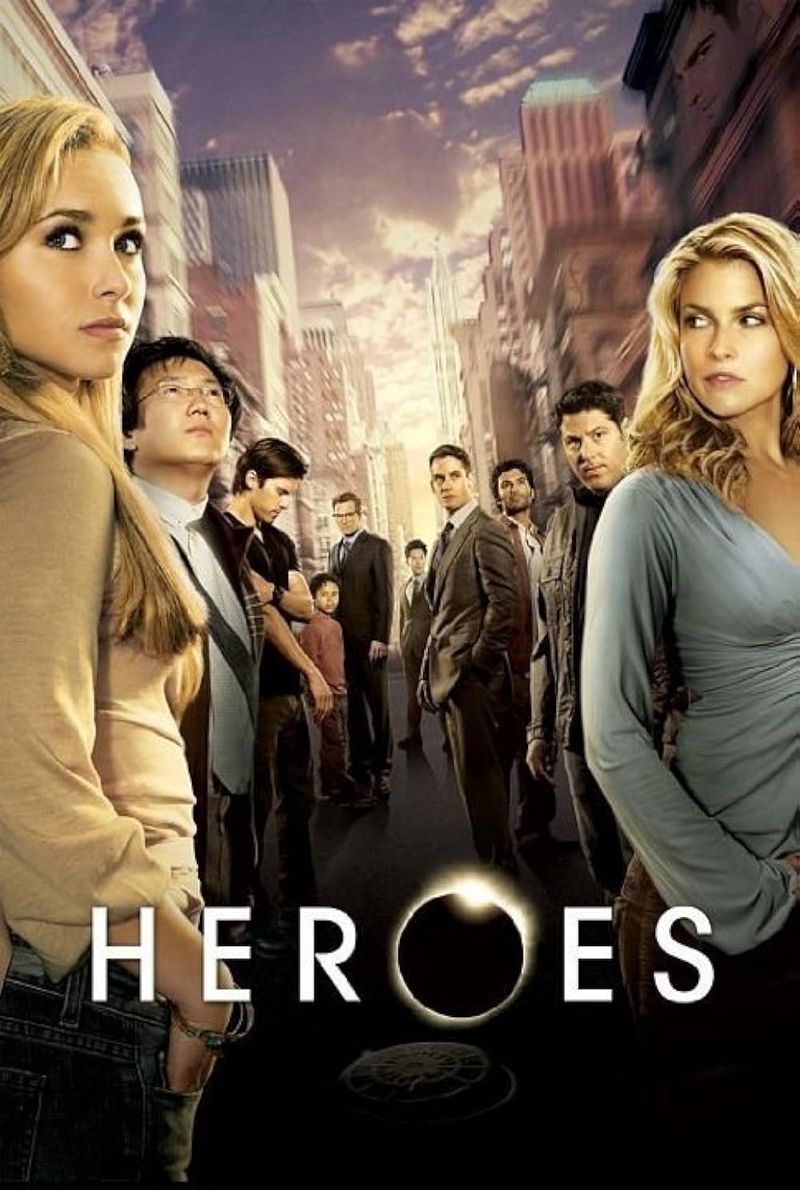
NBC’s superhero drama burst onto screens with a phenomenal first season that captivated audiences worldwide. The compelling storyline about ordinary people discovering extraordinary abilities felt fresh and exciting.
Then came the infamous second season, shortened by the writers’ strike but plagued by meandering plots and character inconsistencies. The show never recaptured its initial magic.
Subsequent seasons saw declining viewership as storylines grew increasingly convoluted. Even a later revival attempt, “Heroes Reborn,” couldn’t resurrect what made the original special. What began as a cultural phenomenon ultimately became a textbook example of a promising show that couldn’t sustain its brilliance.
2. The OA
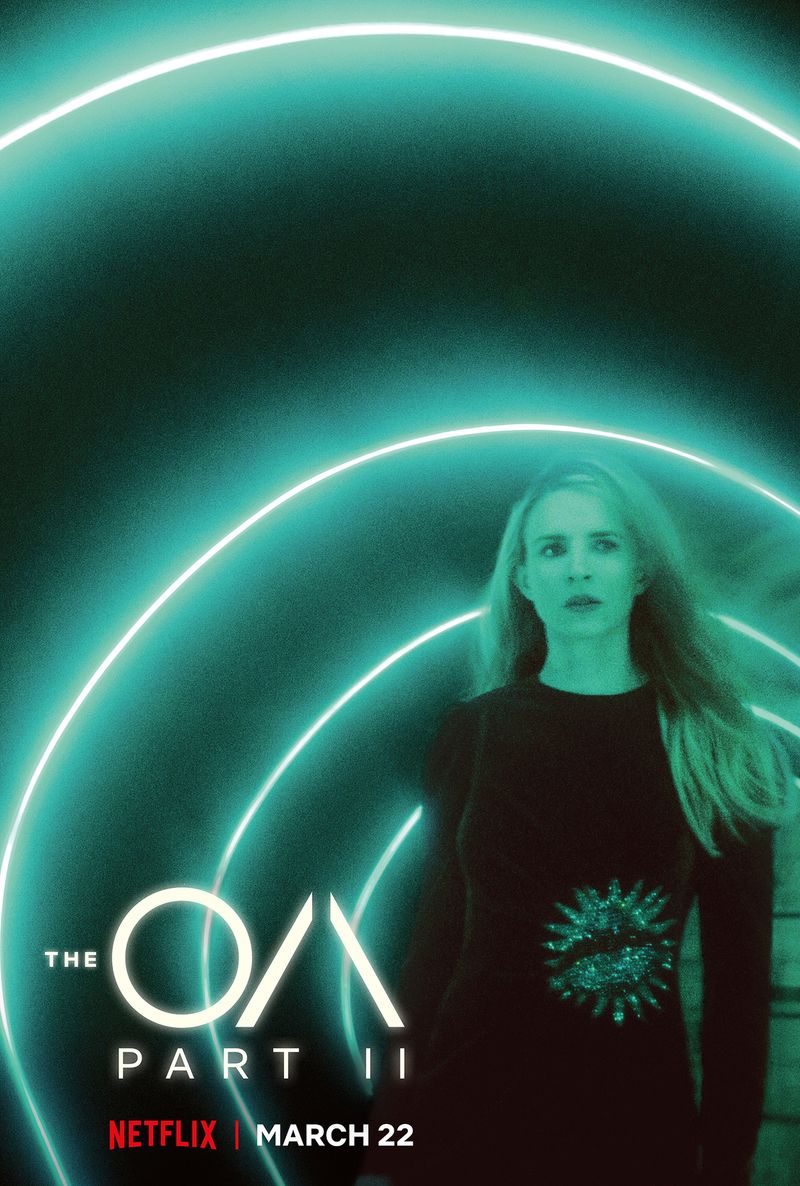
Arriving softly rather than with a splash, Netflix’s mysterious sci-fi drama quickly won over devoted viewers with its strange combination of near-death journeys, dimensional shifts, and expressive dance.
The first season concluded with a polarizing finale that left viewers debating whether it was brilliant or ridiculous. Season two expanded the mythology with even stranger concepts, ending on a mind-bending cliffhanger that broke the fourth wall.
Then came the shocking cancellation, leaving fans without resolution to the ambitious story. The OA’s unfulfilled potential and abrupt ending left its passionate audience feeling like they’d been abandoned between dimensions.
3. Iron Fist
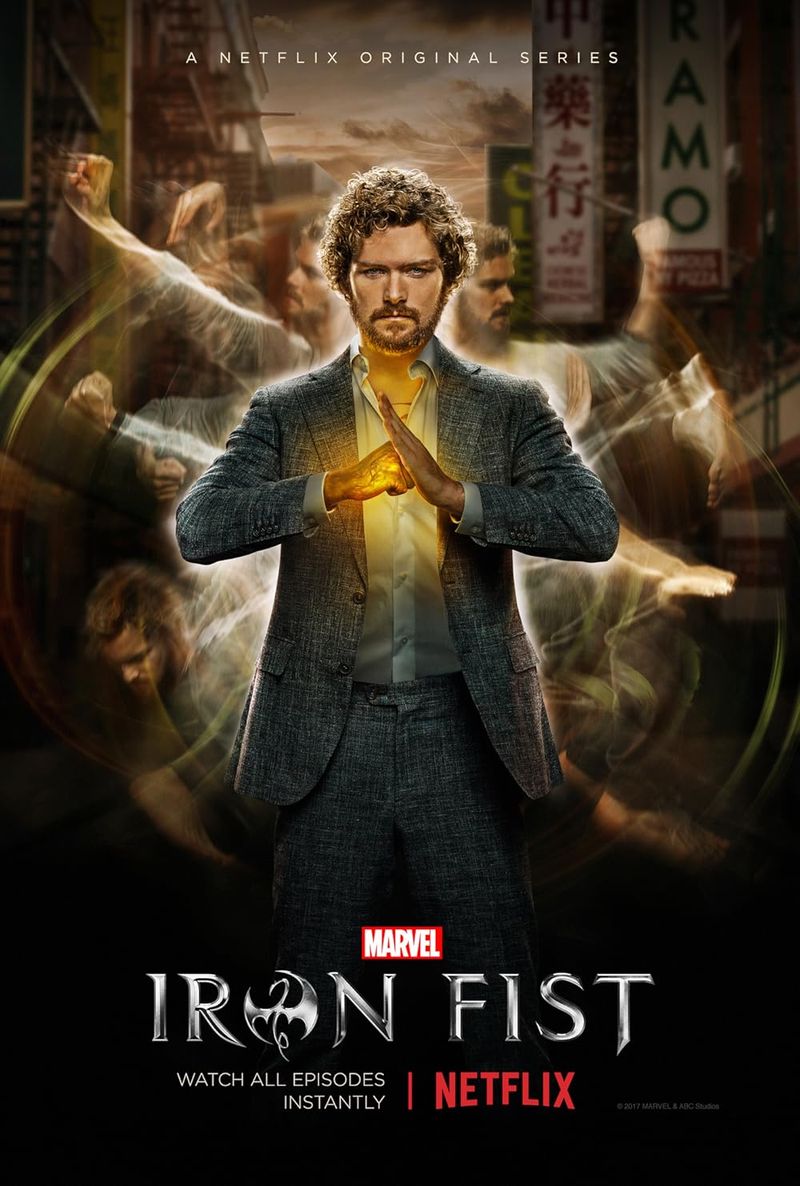
With popular shows like Daredevil and Jessica Jones setting the stage, Marvel’s Netflix universe introduced Iron Fist. Fans looked forward to Danny Rand’s expert martial arts as the last Defender joining the team.
What they got instead was wooden acting, underwhelming fight scenes, and a protagonist many found insufferable. Critics panned the first season for its sluggish pacing and questionable cultural elements.
The second season showed some improvement but couldn’t overcome the damage. In a universe of street-level heroes with gritty stories and impressive action, Iron Fist stood out for all the wrong reasons, becoming the weak link in Marvel’s otherwise strong Netflix chain.
4. True Detective
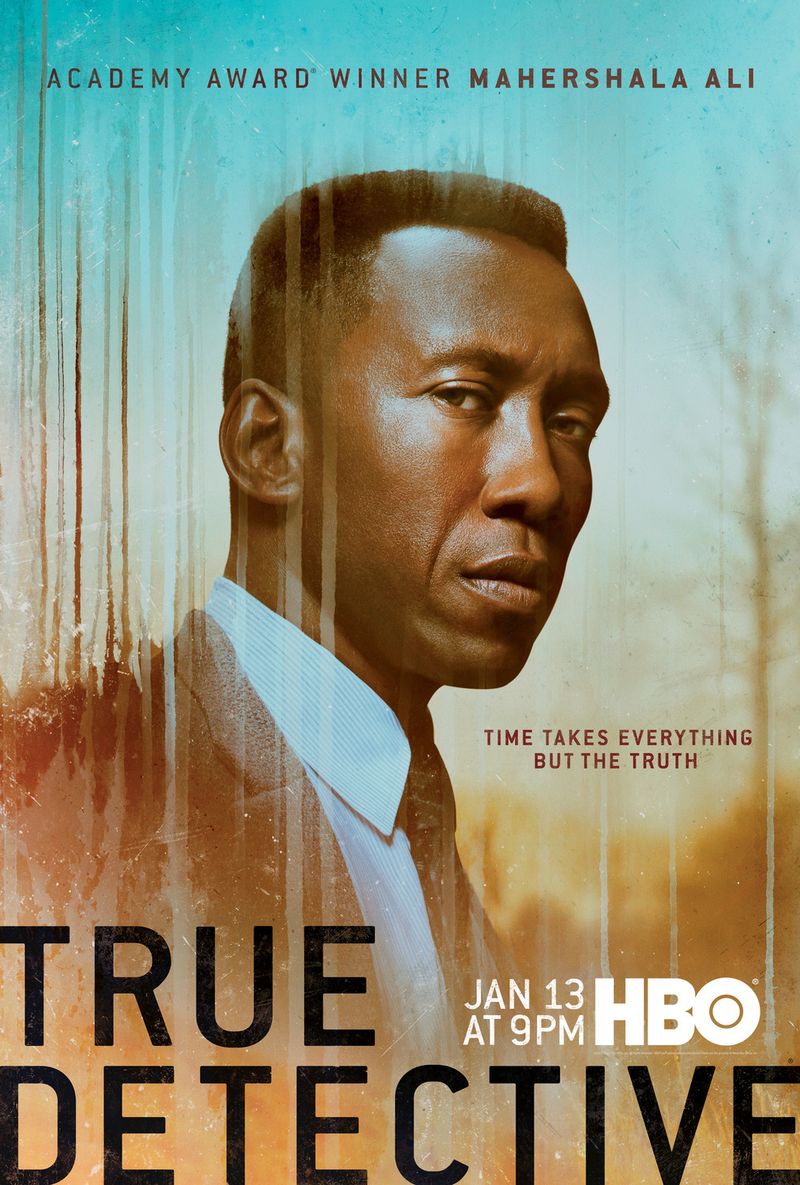
Following the masterful first season with Matthew McConaughey and Woody Harrelson was always going to be challenging. Season one had set a new standard for television with its philosophical dialogue, haunting atmosphere, and intricate mystery.
Season two assembled an impressive cast including Colin Farrell, Rachel McAdams, and Vince Vaughn, but something crucial was missing. The California-set story lacked cohesion, featuring a convoluted plot about land deals that left viewers confused rather than intrigued.
The distinctive mood that made the first season special was replaced by generic crime drama tropes. Critics and audiences agreed: lightning hadn’t struck twice for HBO’s anthology series.
5. The Get Down
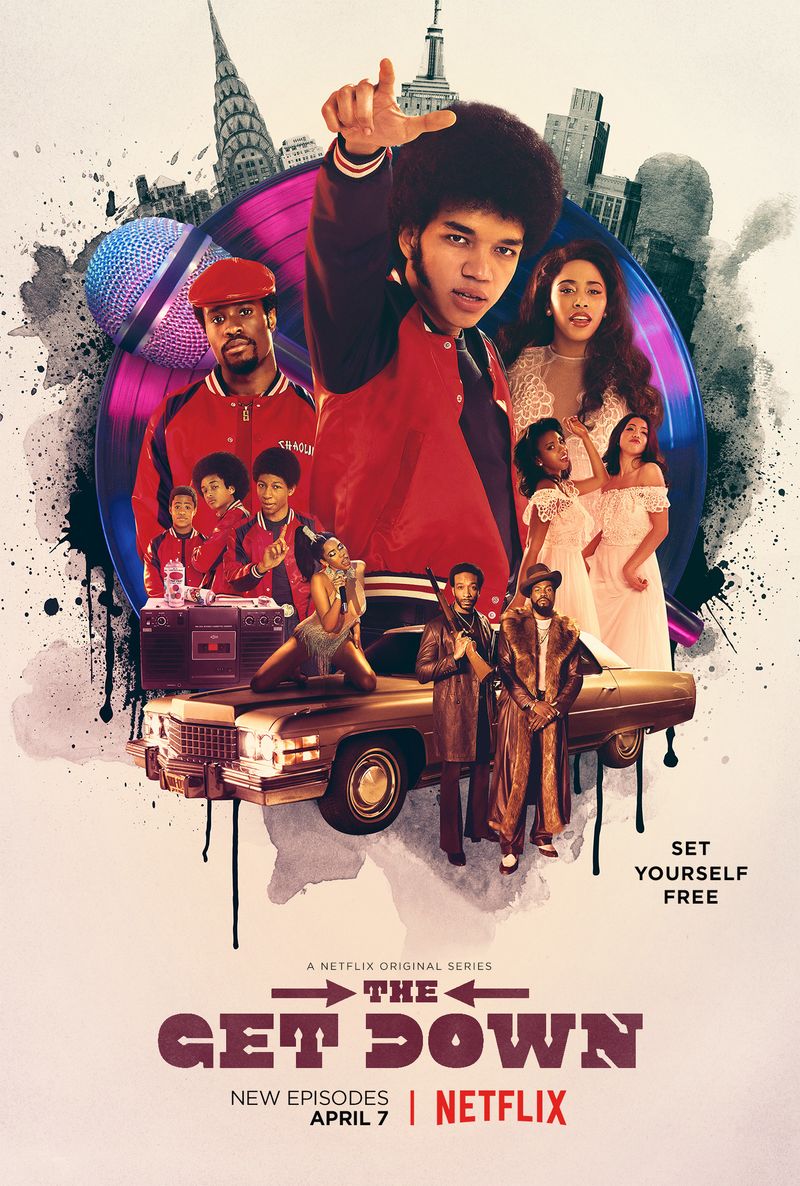
Baz Luhrmann’s ambitious musical drama about the birth of hip-hop in 1970s Bronx arrived with enormous expectations. With a reported budget of $120 million for just 11 episodes, it was one of Netflix’s most expensive productions ever.
The series showcased dazzling visuals, energetic performances, and authentic musical sequences that captured the era. However, production troubles plagued the show, resulting in unusual split seasons and inconsistent storytelling.
Despite its creative highs, The Get Down never found a large enough audience to justify its massive cost. Netflix canceled it after just one season, making it a brilliant but financially unsustainable experiment that left fans wanting more of its unfulfilled promise.
6. The I-Land
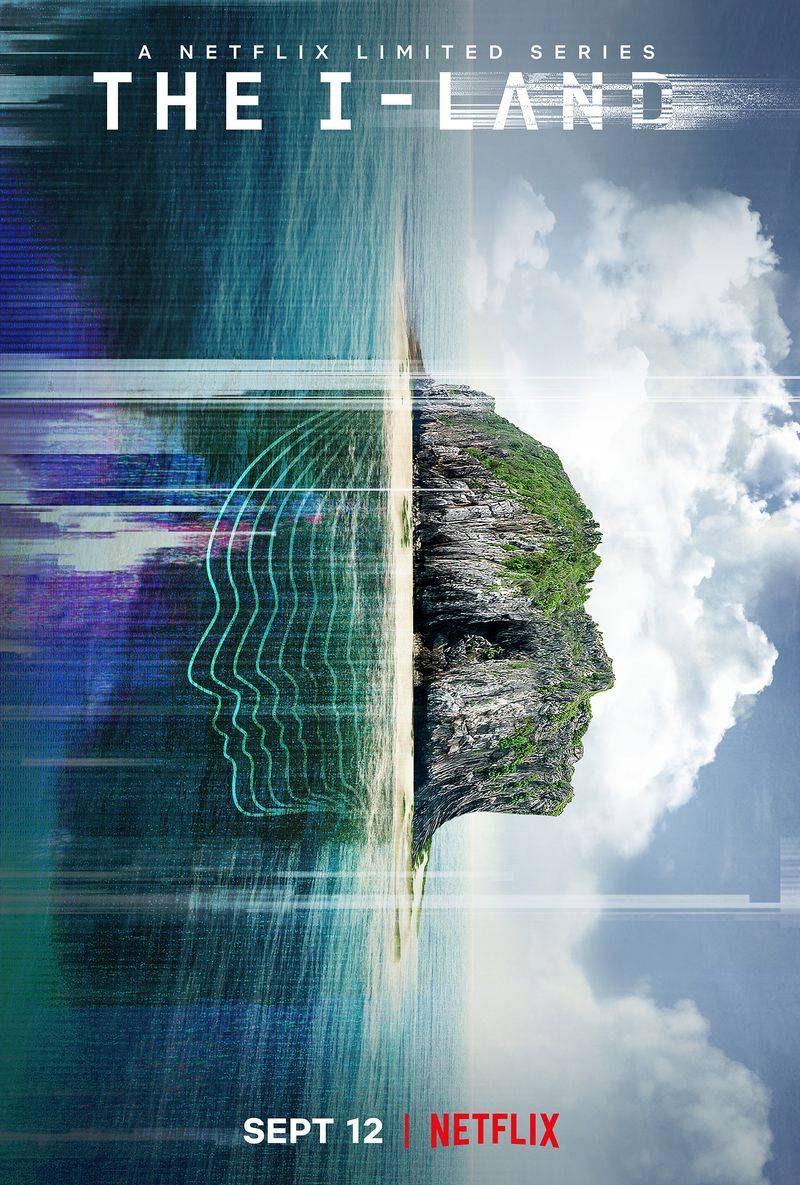
Trying to capture the mystery-box charm of series such as Lost, Netflix’s sci-fi thriller presented a promising premise: strangers find themselves on a tropical island, completely unaware of who they are or how they got there.
Unfortunately, the execution fell spectacularly flat. Wooden dialogue, unconvincing performances, and plot holes big enough to sail a yacht through made it unintentionally comedic. The twist revelations felt forced rather than earned.
Critics savaged the series, with one famously calling it “Netflix’s worst show ever.” What could have been an intriguing exploration of identity and reality instead became a cautionary tale of how not to make a sci-fi mystery series.
7. Terra Nova
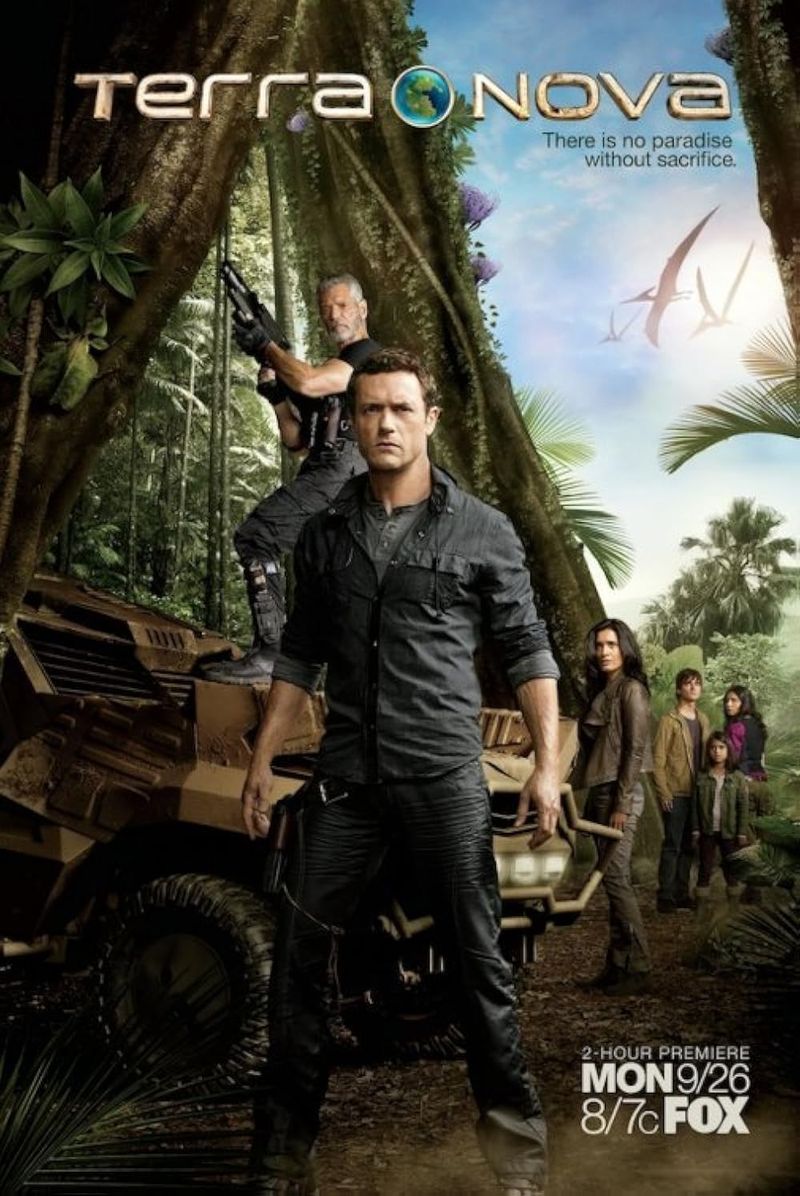
Backed by a blockbuster budget and sky-high expectations, Steven Spielberg’s time-travel dinosaur story unfolded. The concept was undeniably fascinating—future Earth dispatches colonists to prehistoric times to preserve humanity.
The pilot impressed with its scope and special effects, promising a family-friendly sci-fi epic. Yet as the series progressed, it devolved into a formulaic monster-of-the-week format that failed to develop its intriguing premise.
Despite the dinosaurs, the show played it surprisingly safe, focusing on teen romance and family drama rather than exploring its high-concept sci-fi elements. FOX canceled the expensive series after one season, ending what could have been television’s answer to Jurassic Park.
8. Vinyl
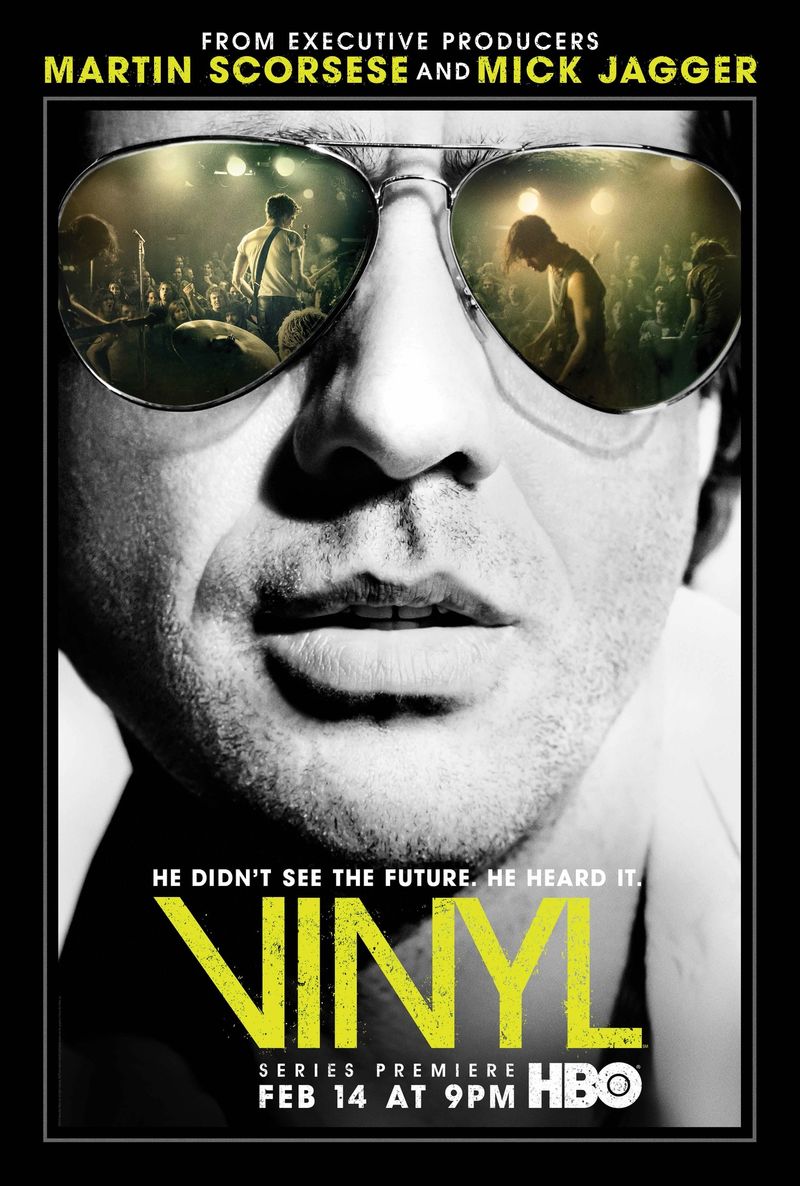
HBO’s rock and roll drama came with impeccable credentials: Martin Scorsese directing the pilot, Mick Jagger producing, and Boardwalk Empire creator Terence Winter showrunning. Set in 1970s New York, it promised to do for the music industry what Mad Men did for advertising.
Bobby Cannavale gave an energetic performance as a self-destructive record executive, but the show around him never found its rhythm. Critics noted the series seemed more interested in recreating the era’s excess than telling a compelling story.
Despite a $100 million investment and initial renewal for a second season, HBO eventually reversed course and canceled the show. Vinyl became a cautionary tale about how even the most prestigious talent can’t guarantee television success.
9. Marco Polo
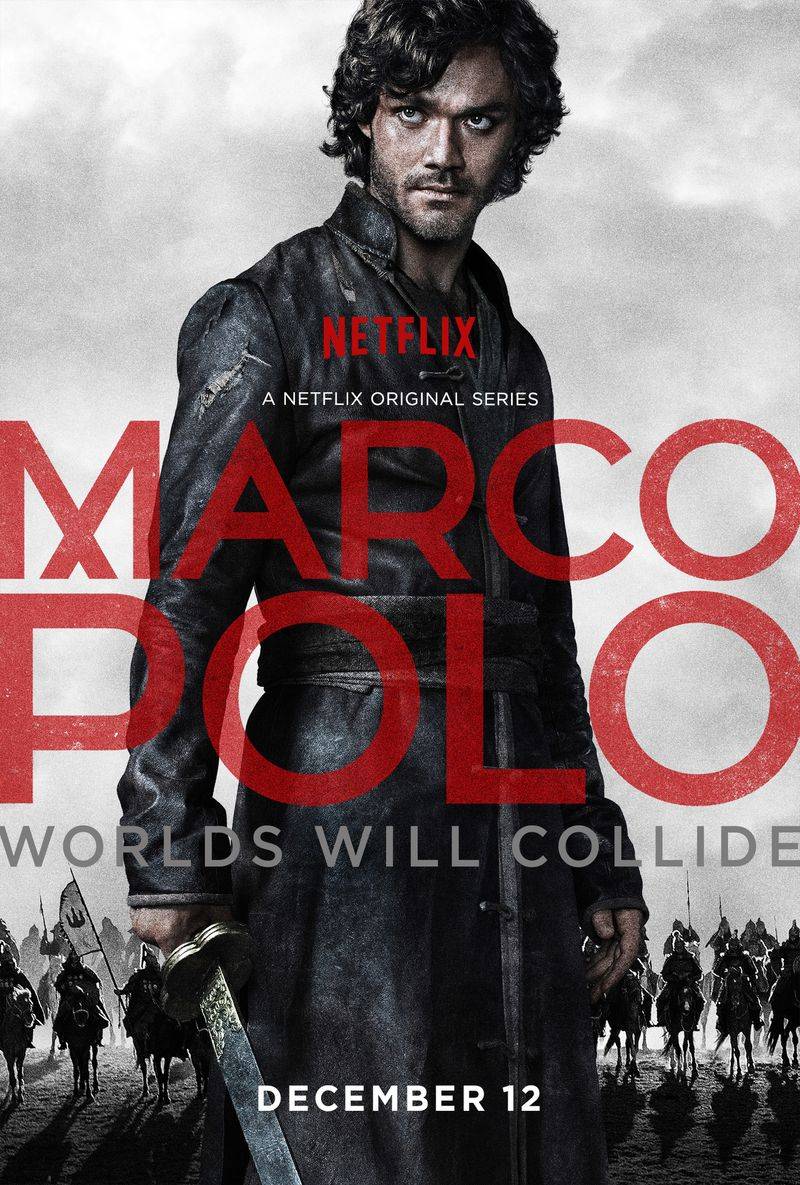
The historical saga about a legendary explorer navigating Kublai Khan’s court arrived on Netflix as its answer to Game of Thrones. With a reported $90 million budget for the first season, the stakes were incredibly high.
The series delivered stunning visuals, elaborate costumes, and impressive battle sequences. Benedict Wong’s portrayal of Kublai Khan earned particular praise. However, the central character of Marco Polo himself often felt like the least interesting person in his own story.
Despite some loyal fans, the series never captured the cultural conversation like other Netflix hits. After two seasons, it was canceled with a reported $200 million loss, making it one of the most expensive television disappointments ever.
10. Sense8
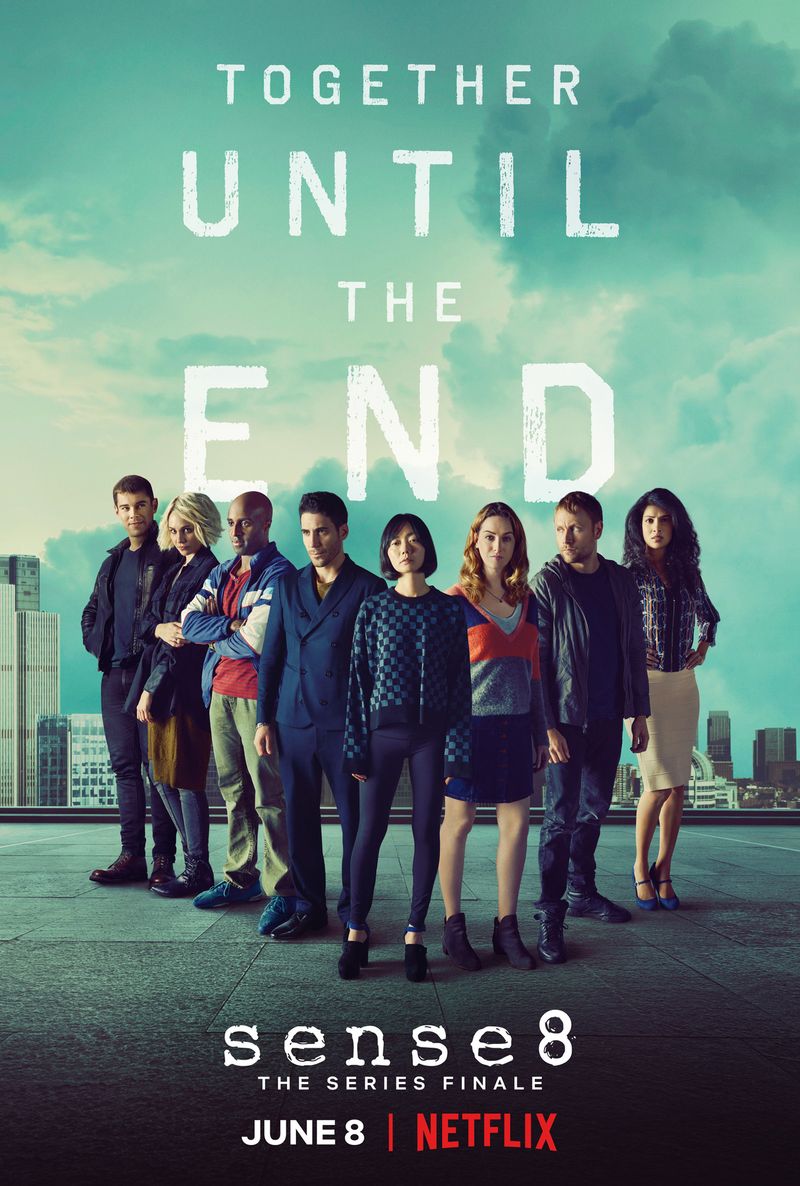
The Wachowskis’ ambitious sci-fi drama about eight strangers psychically connected across the globe showcased breathtaking international locations and groundbreaking representation. Filming in 16 cities across the world, it pushed the boundaries of what a TV production could accomplish.
The show developed a passionate fan base who connected with its themes of empathy and shared humanity. However, its complex narrative and slow-burn storytelling made it difficult for casual viewers to engage with.
Despite critical acclaim for its diversity and vision, Sense8’s enormous production costs led to cancellation after just two seasons. Fan outcry secured a finale movie, but the series’ full potential remained unfulfilled, leaving viewers wondering what could have been.
11. Westworld
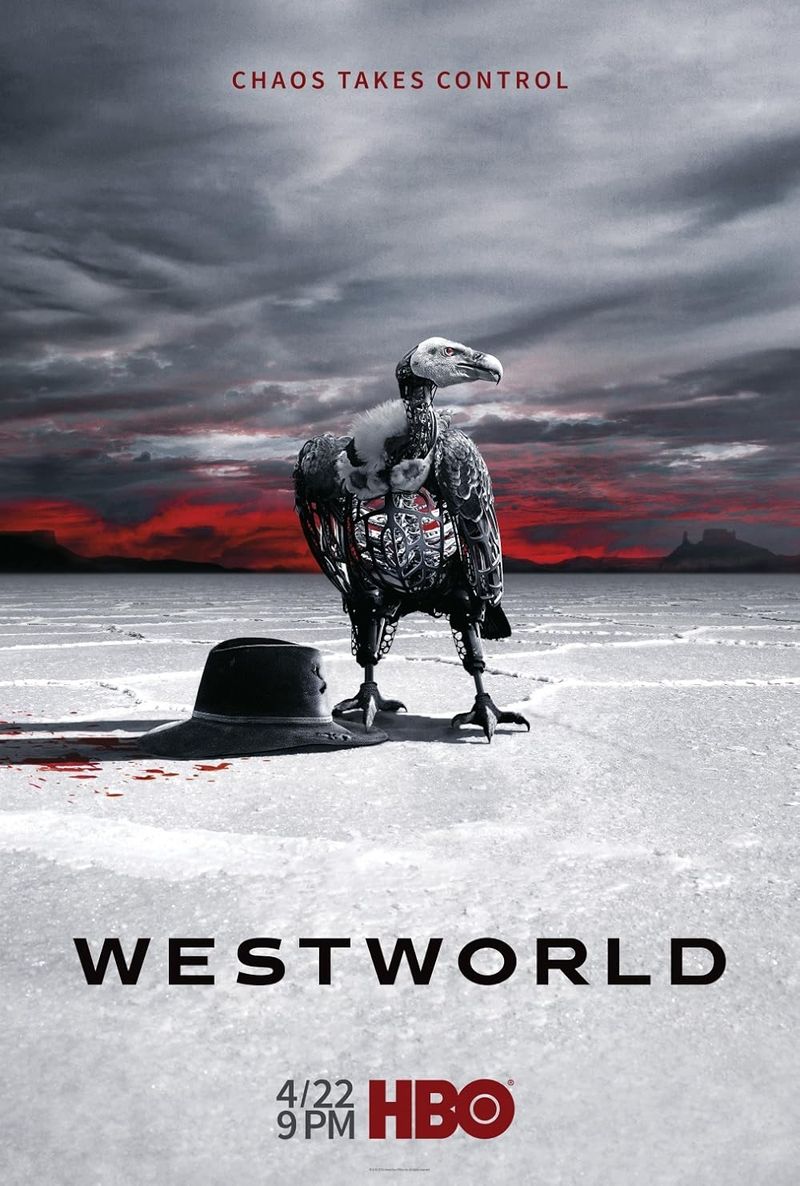
As one of TV’s most anticipated new series, HBO’s sci-fi western expertly tackled deep questions about consciousness, free will, and humanity, all framed within a futuristic theme park staffed by lifelike robots.
Season two expanded the scope but lost some viewers with its intentionally confusing timeline and philosophical density. By seasons three and four, the show had abandoned the park setting entirely for a broader sci-fi narrative that many felt strayed too far from what made the show special.
Declining viewership and increasing production costs led HBO to cancel the series before its planned conclusion. What started as a potential successor to Game of Thrones ended as a brilliant but frustrating experiment that couldn’t maintain its initial appeal.
12. The Event
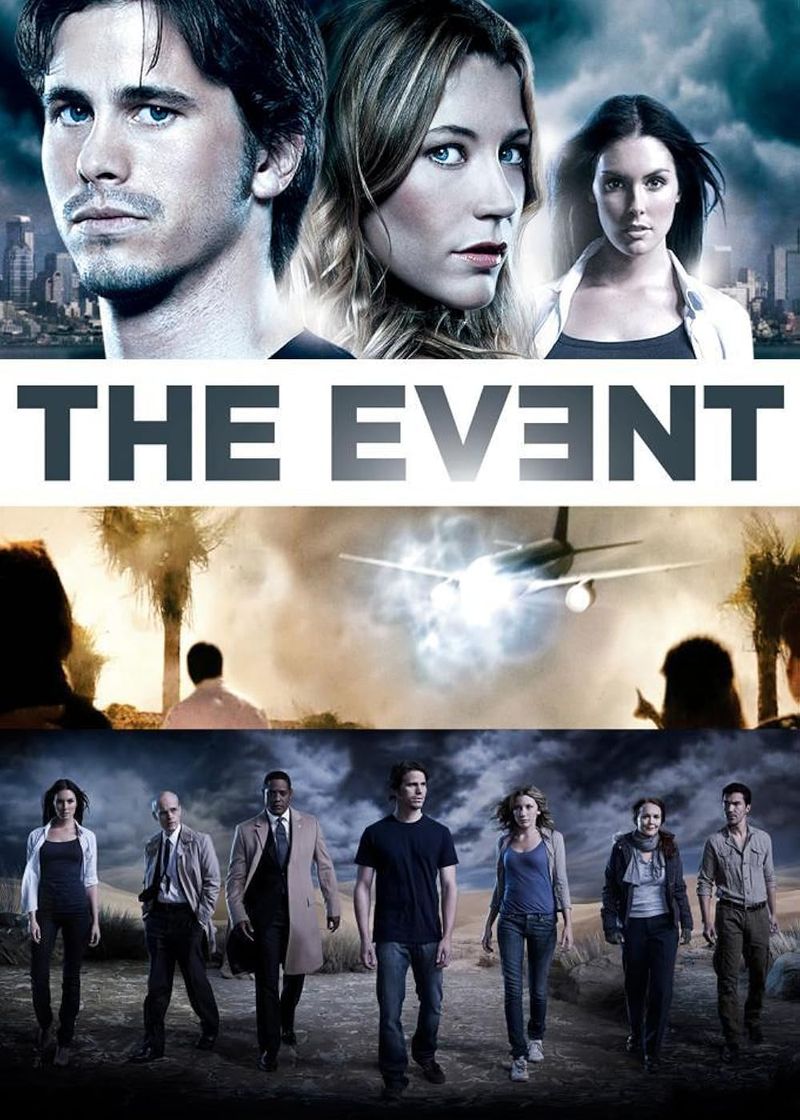
Arriving in the post-Lost era, NBC’s sci-fi thriller aimed to capture the mystery-driven audience networks were craving. Its advertising campaign was huge, with the question “What is the event?” splashed on billboards nationwide.
The pilot delivered solid ratings with its story of aliens secretly living among humans and a presidential assassination attempt. However, viewers quickly grew frustrated with the show’s reluctance to provide satisfying answers while piling on more questions.
Flashbacks within flashbacks created a confusing narrative that failed to maintain audience interest. Cancellation after one season meant that many mysteries remained unresolved, and most viewers never found out what “the event” actually was.
13. Sleepy Hollow
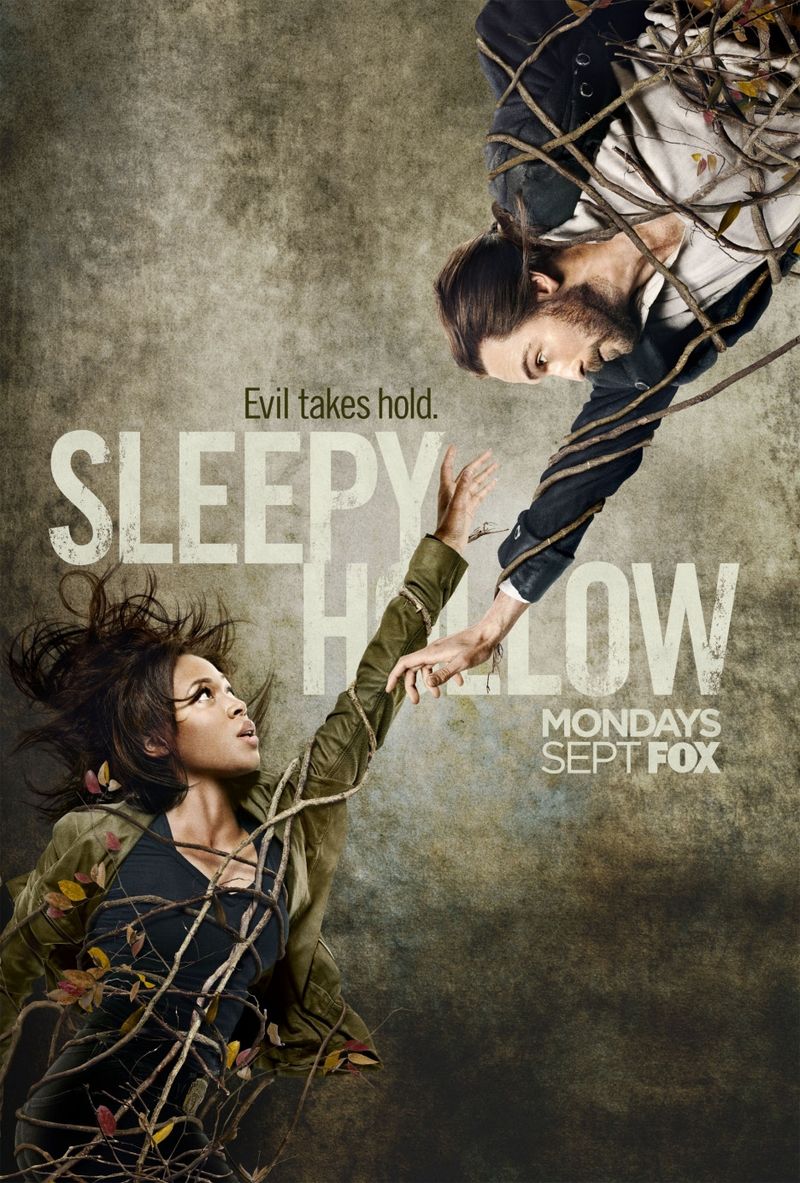
FOX’s supernatural drama started with an irresistible premise: Ichabod Crane awakens in modern-day Sleepy Hollow and teams up with a police lieutenant to battle the Headless Horseman and prevent the apocalypse. Tom Mison and Nicole Beharie’s chemistry made the unlikely partnership instantly appealing.
The first season balanced monster-of-the-week episodes with an engaging mythology and a healthy dose of humor. Then came the questionable creative decisions: extending the original 13-episode season, separating the lead characters, and introducing convoluted plotlines.
By season three, the show had lost its way entirely, culminating in the controversial decision to kill off Beharie’s character. What began as a refreshingly creative supernatural series ended as a cautionary tale about squandering early potential.
14. Emerald City
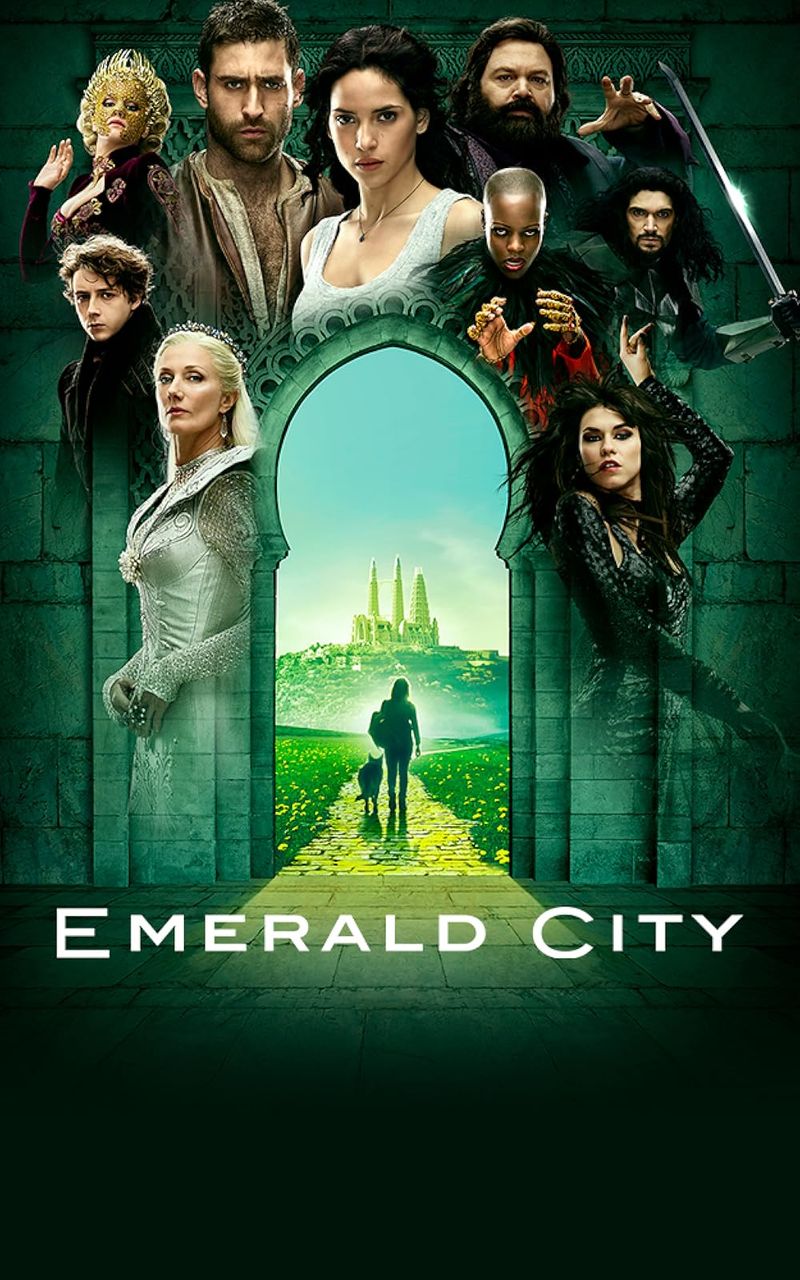
Promising a more adult and visually stunning version of L. Frank Baum’s beloved world, NBC’s dark take on The Wizard of Oz was helmed entirely by Tarsem Singh, whose signature style brought impressive production values and cinematography to the screen.
The show featured creative interpretations of familiar characters: a steampunk Tin Man, a gender-swapped Wizard, and a more complex Dorothy. Despite these interesting elements, the storytelling felt muddled, unsure whether it wanted to be Game of Thrones with flying monkeys or a faithful Oz adaptation.
Critics praised the visuals but criticized the uneven pacing and tone. Viewers didn’t follow the yellow brick road in sufficient numbers, leading to cancellation after a single season of unfulfilled potential.
15. The Grinder

FOX’s meta-comedy starred Rob Lowe as an actor who played a lawyer on TV deciding to join his family’s real-life law firm. The clever premise and Lowe’s chemistry with co-star Fred Savage created a genuinely funny show that critics adored.
The series playfully skewered legal dramas and celebrity culture while delivering sharp dialogue and character development. Despite positive reviews and a dedicated fan base, The Grinder never found the wider audience it deserved.
Low ratings led to cancellation after just one season, making it another example of a critically acclaimed comedy that viewers discovered too late. The Grinder rests its case as one of television’s best recent comedies that most people never saw.
16. Crisis
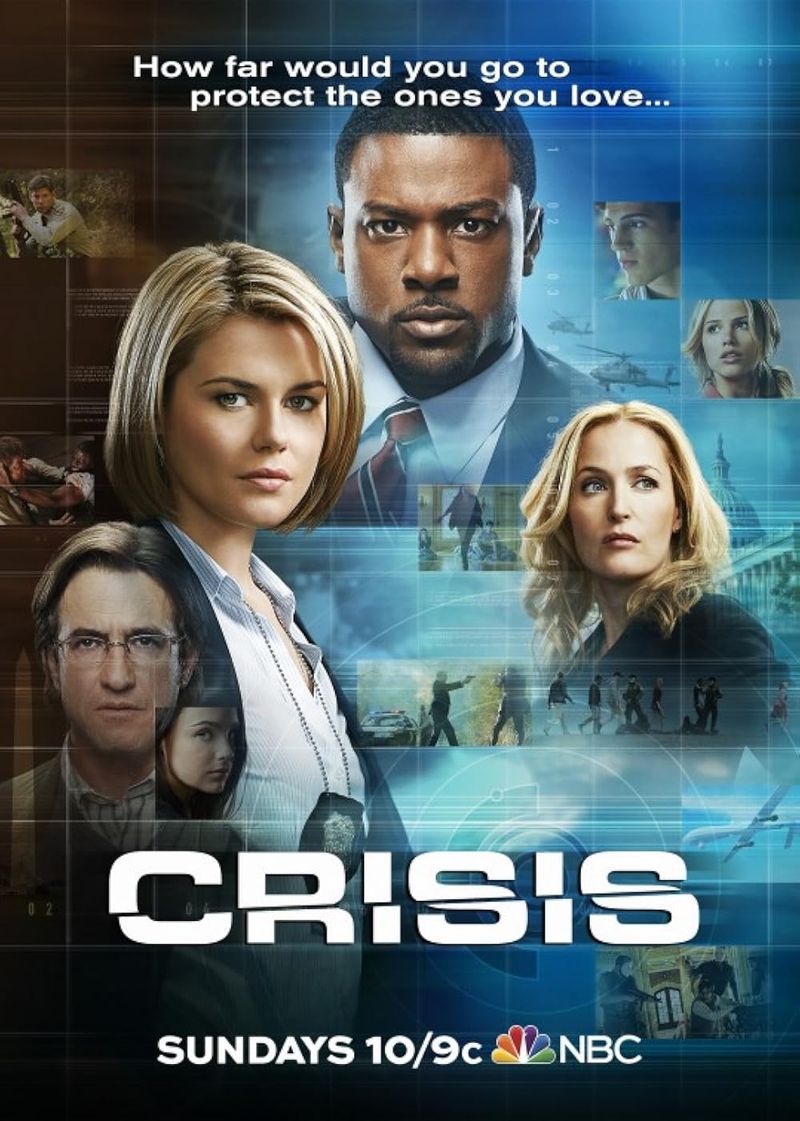
Centered on the kidnapping of a busload of Washington DC’s elite students—among them the President’s son—NBC’s thriller boasted a strong cast, including Gillian Anderson, Dermot Mulroney, and Rachael Taylor, and offered a story full of political suspense and drama.
The pilot established multiple compelling storylines and mysteries surrounding the kidnapping. As the series progressed, however, the plot became increasingly convoluted with unnecessary twists that diminished the initial tension.
Scheduling issues and declining viewership led NBC to burn off the final episodes with little promotion. The series concluded after just 13 episodes, becoming another entry in the network’s long list of promising thriller concepts that failed to maintain momentum.
17. The Crossing
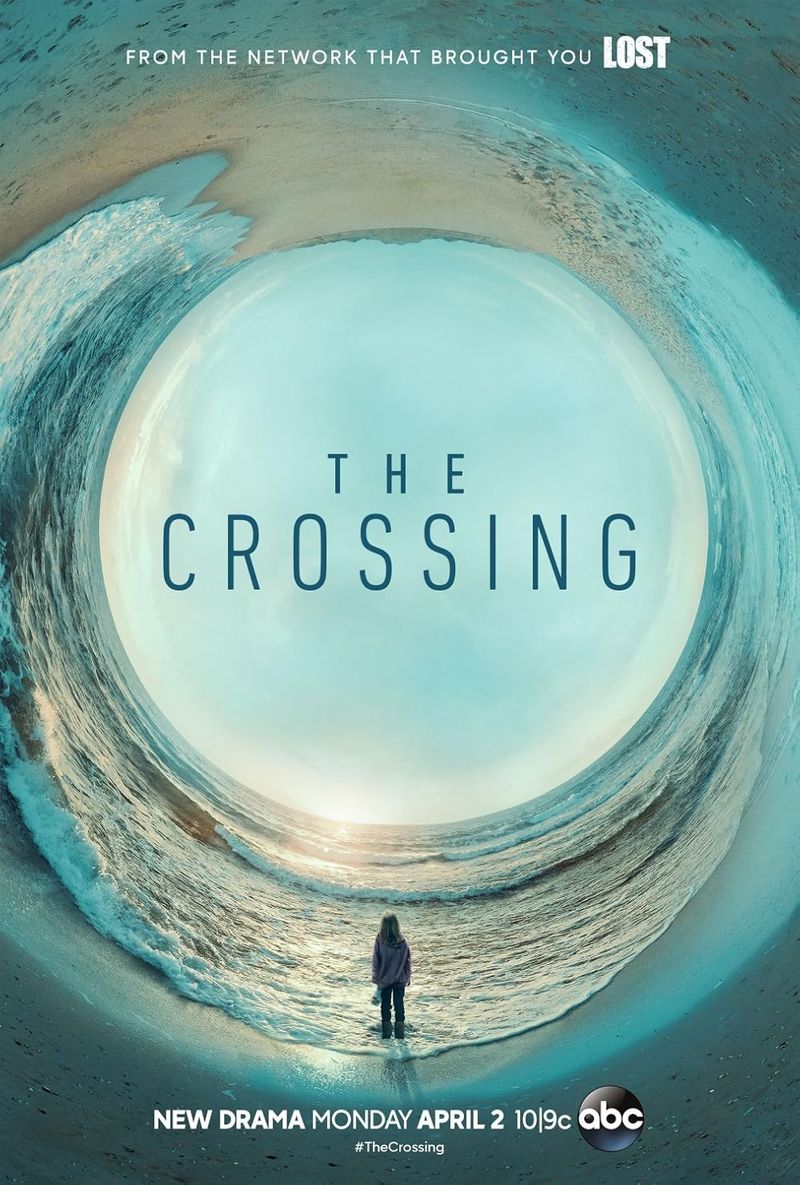
Opening with a captivating hook, ABC’s sci-fi mystery drama told the story of refugees from a war-ravaged future America who wash up in present-day Oregon. Led by Steve Zahn as the local sheriff, the series explored themes of immigration and bias.
Early episodes built intriguing mysteries around the refugees’ origins and the future war they were fleeing. However, the slow pace of revelations tested viewer patience, and the show struggled to balance its high-concept premise with relatable character development.
Declining ratings led to cancellation after just one season. The Crossing joined the growing list of ambitious network sci-fi shows that couldn’t translate their interesting premises into sustainable viewership.

Comments
Loading…